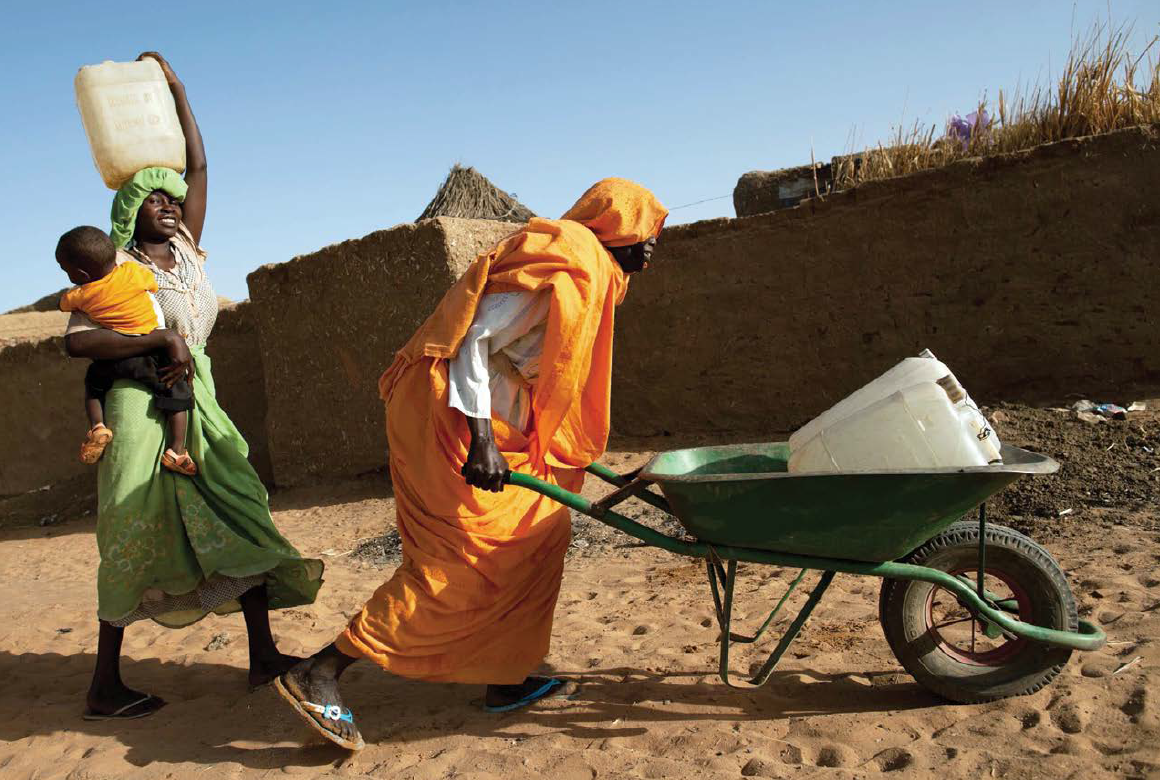 World Bank
World Bank
The year 2020 has been shaped by interlocking crises: the COVID-19 pandemic that threatens to roll back years of hard-won development progress, the struggles of delivering the water-related Sustainable Development Goals (SDGs), and the impacts of climate change that continue to devastate communities across the world.
First, the COVID-19 pandemic highlighted to the world the critical need for water to not only prevent the spread of the disease, but also to revitalize economies, employment opportunities, health outcomes, and the environment. This year starkly demonstrated the tremendous gaps in access to water supply, sanitation, and hygiene services, which are particularly evident in COVID-19 hotspots, health care facilities, informal settlements, and fragile and conflict-affected states.
Second, the water sector was already struggling with the challenges of achieving the water-related SDGs—progress was lagging, and financing was still falling short as we grappled with the need to raise the profile of water writ large by catalyzing political will and leadership.
Finally, climate change, expressed through the water cycle, remains a major threat to the world. Its impact on the quality, management, variability, and availability of water was demonstrated throughout the year, particularly for the world’s poorest and most vulnerable. Science tells us, and nature is showing us, that climate change is fundamentally altering the world in which we live. Already we are seeing more frequent and intense storms and droughts, and major disruptions of the water cycle in all regions.

This year clearly demonstrated that the Global Water Security & Sanitation Partnership (GWSP) is “fit for purpose” and was able to quickly and adeptly respond to the COVID-19 crisis in the World Bank Group’s client countries, while contributing to all facets of its response. Stories of and insights from its impact is now available in its 2020 Annual Report, launched today. In addition to the local presence of “boots on the ground,” the adaptive and just-in-time nature of GWSP support to governments proved critical.
Importantly, the five themes of sustainability, inclusion, institutions, financing, and resilience were relevant to the design of a short-term emergency and health-focused response, even while setting the stage for the longer-term development and recovery efforts of “building back better.”
The report highlights just some of the examples of how this unique partnership supported governments. This year GWSP was able put in place urgent interventions to ensure that households have reliable water to facilitate handwashing, provide access to water supply, sanitation, and hygiene services for those most in need, support utilities in providing continuous service, and maintain other critical water services, such as irrigation needed to feed communities and provide sustainable livelihoods. All this was done without losing sight of the climate goals and SDGs to which we are all committed.
Over the past 12 months, GWSP has consistently risen to meet these challenges. I am confident that this partnership will continue to play a key role in the global recovery and remain a vital asset as we chart a course towards a healthy and water-secure world for all.
FEATURE STORY : Global Water Security & Sanitation Partnership (GWSP): Delivering on Solutions to the Water Crisis
LINK: REPORT


Join the Conversation